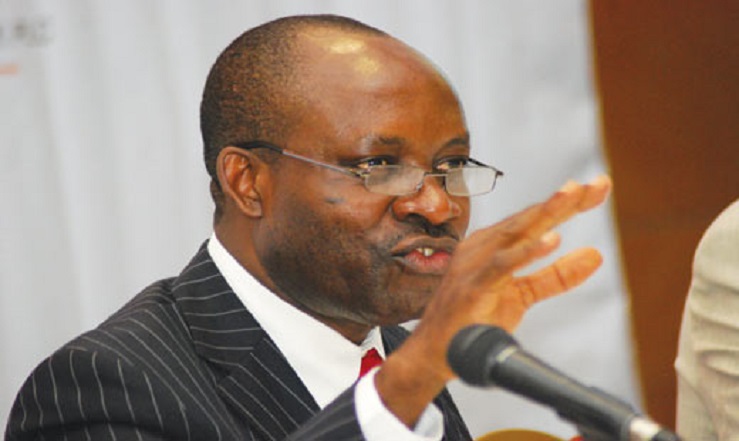- Official Exchange Rate Redundant, Soludo Tells CBN
A former Governor of the Central Bank of Nigeria, Prof. Charles Soludo, says the apex bank’s official exchange rate of N306 to the dollar has become redundant, describing it as an instrument for rent seekers and arbitrary allocation of scarce foreign exchange in the country.
As a result, he said the CBN must achieve a unified market-determined exchange rate by eliminating the current multiple exchange rates as a matter of urgency.
Soludo spoke in a keynote address at the eight annual Pan-Africa Investor Conference organised by Renaissance Capital, an international investment bank, in Lagos on Wednesday.
He said, “The general price level has already adjusted because that’s the primary price indicator in the market. The prices that people hear, i.e. the exchange rate that people talk about is the parallel market rate. Anybody who says it is irrelevant is not discussing Nigeria as an economy. The official one is like the time when you had the price control regime.
“Even those who had accessed forex at the official rate, when they are fixing their prices, they are fixing their prices in comparison with the imported ones, which are taking signals from the parallel market rate. So the general price level has adjusted there. The official exchange rate is redundant; it is just for rent and for arbitrary allocations.”
Soludo also advised the CBN to dump its current import substitution policy and adopt an export-oriented industrial strategy if it hoped to take Nigeria out of its present economic woes.
According to him, the country is implementing import substitution is a crude way and it must remove the ban placed on importers of some 41 items from accessing dollars at the official interbank foreign exchange window.
The former CBN governor said, “Every regime comes to ban and the next unbans it. That is not the way to protect an economy. If you have a market-determined exchange rate regime and you do not want certain items, you put tariffs. The exchange rate plus the tariffs will make, for instance, the imported tomatoes uneconomical.
“That is where you deal with it on a sustainable basis. There is a need to think of a life beyond crude oil. We need not just import substitution; we need infrastructure and export-oriented industrialisation strategy. We cannot do that with this kind of crude inward look.”
According to Soludo, China has over one billion population and has become a successful country through export-oriented industrialisation, adding, “China was not doing import substitution.”
“That’s why they have built trillions of dollars in foreign reserves with weak currency that makes import into their country expensive and makes exporting very rewarding,” he added.
The former CBN governor said many companies that needed some of the 41 items had folded up and that thousands of jobs had been lost.
“Yet there is a better, sound, transparent and sustainable way of achieving what you intend to achieve. To create prosperity for all and lift millions out of the job market, we need industrialisation; we need to be exporting. We must fix the infrastructure,” he added.
Soludo also said that Nigeria’s public finance was broken because the country’s total expenditure was in excess of its total revenue.
He said, “In a regime where you have the total recurrent expenditure in excess of your total revenue, there is an issue. You know people talk about recurrent expenditure being 70 per cent of the budget; they are including the debt. As a percentage of your total revenue, you recurrent expenditure is a hundred and something per cent, which means as it is today, part of our borrowing is actually to finance recurrent expenditure.”

 Billionaire Watch3 weeks ago
Billionaire Watch3 weeks ago
 Startups4 weeks ago
Startups4 weeks ago
 News4 weeks ago
News4 weeks ago
 News4 weeks ago
News4 weeks ago
 Bitcoin4 weeks ago
Bitcoin4 weeks ago
 Naira4 weeks ago
Naira4 weeks ago
 Forex3 weeks ago
Forex3 weeks ago
 Treasury Bills4 weeks ago
Treasury Bills4 weeks ago

























